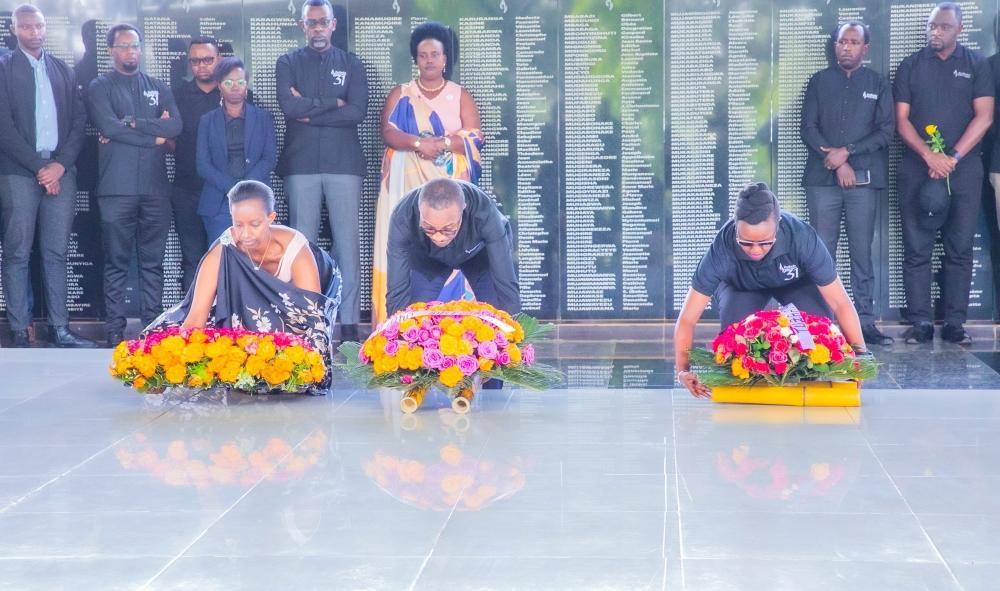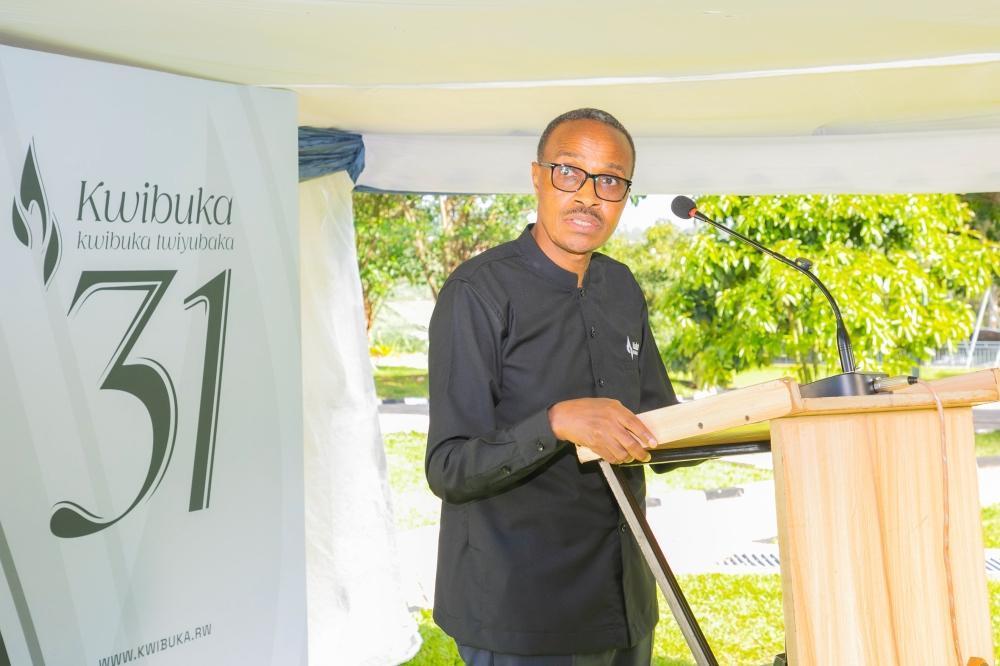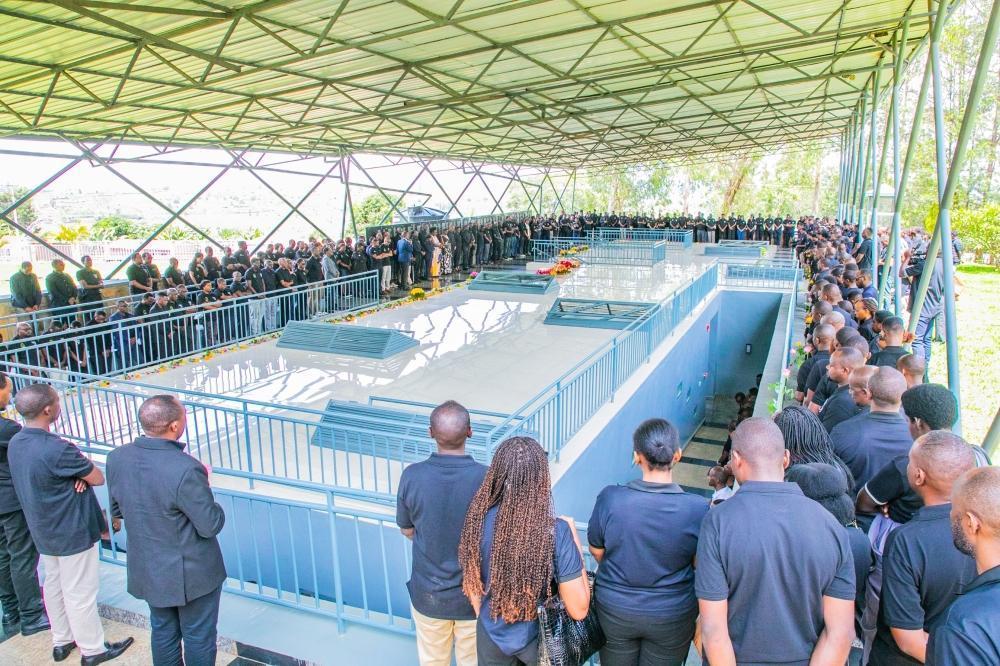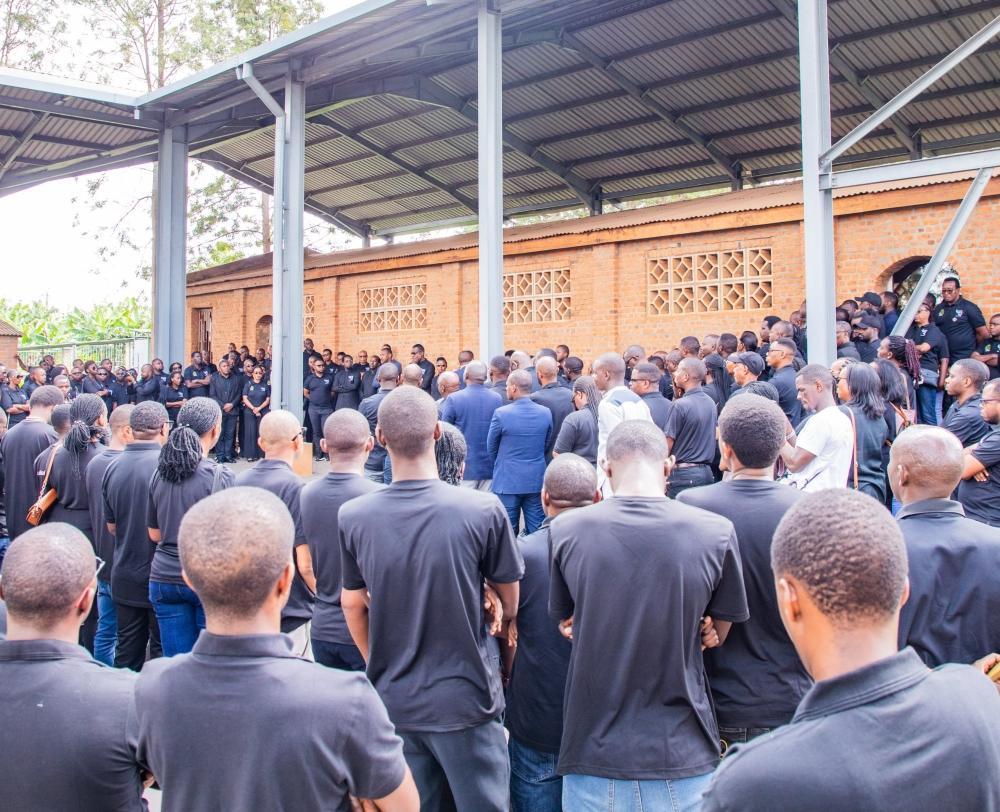Africa-Press – Rwanda. The consequences of the division and discrimination once endorsed by government institutions before and during the 1994 Genocide against the Tutsi in Rwanda should be a lesson to everyone, the Minister in Charge of Emergency Management, Albert Murasira, has stressed.
While speaking during a joint commemoration event held by several government institutions at Ntarama Genocide Memorial, in Bugesera District, on Friday, May 16, the minister urged Rwandans to be united and reject harmful divisive ideas.
Minister in Charge of Emergency Management, Albert Murasira, speaks during the joint commemoration event held by several government institutions at Ntarama Genocide Memorial, in Bugesera District, on Friday, May 16.
The institutions included the Ministry of Environment, the Ministry of ICT and Innovation, Ibuka, the genocide survivors’ association, Meteo Rwanda, Rwanda Water Resources Board, and National Land Authority. During the event, 40 genocide victims who once worked for the former Ministry of Environment and Tourism (MINETO) were remembered.
“Most of the masterminds of the genocide were government officials, just like us today. They killed, persecuted, and harassed their fellow Tutsi with no mercy. This clearly shows how they were deliberately driven by division and discrimination, and tragically, they were supported by their respective institutions,” he noted.
“It is a clear sign of bad leadership, one that lacks reason and a moral compass. A good public servant should always strive for the good of all and stand firmly against any form of evil. But, sadly, this was not the case during the first and second republics where division and discrimination came before anything else,” the minister said.
According to Philibert Gakwenzire, the president of Ibuka, MINETO was established in April 1992 at the time of the rise of the multi-party system. It was entrusted to Gaspard Ruhumuliza, an extremist and veteran politician born in the former Gitarama Prefecture (now Muhanga District). During his tenure, Ruhumuliza supported and promoted division, discrimination, and persecution of the Tutsi.
The situation worsened in 1993, as workers began forming groups. During political party rallies or demonstrations, these groups would face Tutsi colleagues, accusing them of being responsible for the chaos and warning that they would pay for it at any time.
As noted, such threats were frequently directed at a woman named Véneranda Nyirabashikazi, who worked in the inspection office.
The threats were often made by Désiré Muhigande, a former MINETO official.
Another official, Jean-Daniel Nkunzineza, a member of the extremist CDR party known for his cruelty frequently called Tutsi employees traitors.
Within the institution, an ideology rooted in ethnic and regional divisions was clearly visible. This was particularly evident in the regular transfers of Tutsi employees, often without clear justification.
The same ideology that fueled the Genocide against the Tutsi could be seen in the way Tutsi staff members were persecuted by their colleagues simply because of their ethnicity. Muhigande and others used to write harassing letters to an employee called Thomas Kabera. Some of the letters targeted him individually, while others accused the institution’s leadership of being traitors.
One letter read: “There are Inkotanyi who have infiltrated the PDC party and are waiting to become MPs”,…this man (Kabera) does not hide his intentions. He often visits Inkotanyi at their residences and holds meetings with Inkotanyi soldiers at the Hôtel Méridien.” Other officials who played roles in the persecution of Tutsi included Juvenal Masabo Nyangezi and Ernest Rukangira.
Christine Muhongayire, the vice president of Ibuka, said: “It’s hard to comprehend how a neighbor, a fellow parent, a colleague, or even someone you pray or sing in a choir with, can suddenly wake up one day and see you as an enemy.
“The same person you shared life with can turn around and stab you, beat you to death with a club, or kill children. This is a painful lesson we must never forget.”
The commemoration event was attended by representatives from the Ministry of Environment, the Ministry of ICT and Innovation, Ibuka, Meteo Rwanda, the Rwanda Water Resources Board, and the National Land Authority.
For More News And Analysis About Rwanda Follow Africa-Press









